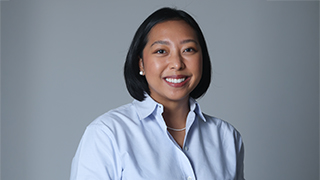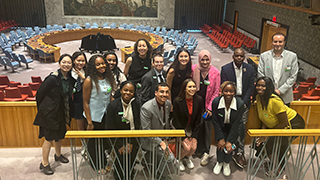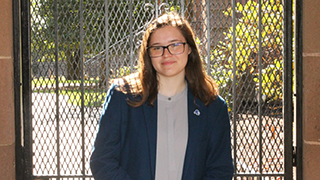Center for Peace and Conflict Studies War for Ukraine Event
Wednesday, April 6, 2022

Dr. Jensen summarized the major events of the war so far and spoke about the prospects for peace in Ukraine. He noted that the current course of the war came as a surprise to several foreign policy experts and that the Russian strategy changed from a blitzkrieg towards the now constant, heavy shelling of civilian targets across several Ukrainian cities. The road to peace could be very arduous because it seems that Russia is going to continue this strategy for the foreseeable future.
Ms. Potarska then spoke about the role of civilian resistance and the role that women have in the peace process along with her experience as a refugee. She spent a great amount of time working in the eastern regions of Ukraine, where there had been a civil conflict for the last several years. Now, she has moved to Poland while several of her colleagues had to move to other places across Europe. Thanks to the internet, she was able to contact those colleagues and share her experience during CPCS's event. Civil resistance had impeded the invasion a great deal, but she noted that women still are not sufficiently included in the peace process.
Next, Dr. Gutbrod spoke about the implications on the Ukrainian war based on other states that border Russia. Georgia acts as special example because it had been victim to a Russian invasion in 2008. Dr. Gutbrod explained the peace process between Russia and Georgia and the danger of false promises that he said are all too common when making peace with the Kremlin.
Finally, Dr. Wang closed by discussing the parallels between Russia's war on Ukraine with China's relations with Taiwan. He explained the parallels between the key role of cultural memory in Russia's hostility towards Ukraine and China's relations with Taiwan. In addition, time was allotted for the audience to field questions. The speakers answered questions about Russian state media, sanctions, and the impact of this conflict on the international system. Dr. Wang ended the conference by asserting that peacemakers have a necessary but difficult role because their jobs revolve around challenging situations and testing people.
CPCS hosts several events per year; this talk is the second in a series of talks given by peace and security experts. A transcript and recording of this event are available upon request. To learn more about CPCS, click here.
Categories: Nation and World






